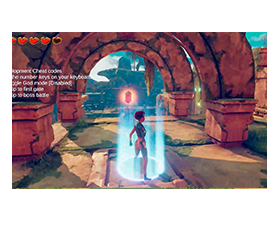At this point we have a firm understanding of basic game-engine contexts
and how audio fits into a Game Engine, we take it a step further.
In short:
We take a look at the basics of code architecture and strategies to store our data.
This allows us to decouple our code from the gameplay, allowing us to work fast and efficient,
even without the use of Middleware!
Course contents:
Using Unity, we'll take a look at specific conceptual implementation details
- Music crossfading & Scene persistence
- Handling footsteps in multiple scene contexts
- Automating the Mixer
- Creating Custom made objects that hold our sound data
- Different Message and Event techniques
- Audio Source Pooling and Tracking
On the Programming side, you're taught the tools to implement those features using
- Debugging
- Serialization concepts (related to Unity)
- More detail about basic language features (Properties, Events, Delegates, Enums)
- Introduction to relevant Design Patterns
Learning materials:
- Unity Learn
- Unity Documentation
- Unity Forums
Evaluation and assignments:
We evaluate competence in
- Creating tooling to efficiently implement audio features not present by default in the engine
- Implement well sounding audio in a project specific context
- The final assignment combines all gained knowledge to implement audio elements in an existing Unity Game
Learning goals and outcomes:
Graduates of this course can operate alongside game programmers, and create tooling that seamlessly integrates with the existing game code.
They are able to optimize the pipeline for efficiency and clarity, as well as optimizing their solutions.
Tools:
Cockos Reaper, Unity, Visual Studio
Teacher(s):
This course is taught by our resident audio implementation wizard Dries Vienne
Contact: dries.vienne@howest.be


